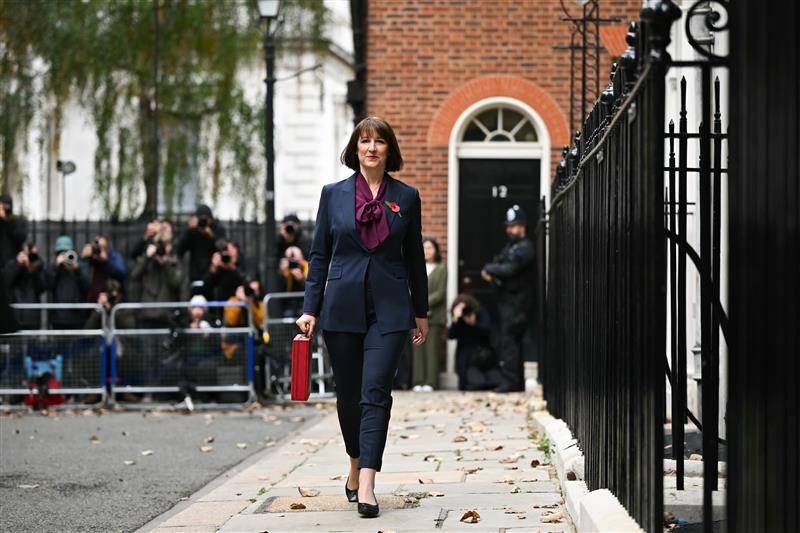Review of the week: Monetary mea culpa
UK inflation simply won’t drop as fast as everyone hopes, leading the Bank of England to admit it needs a new model. Meanwhile, a compromise is proposed to kick the can on the US debt ceiling till after the next election.

Article last updated 30 September 2025.
|
Quick take:
|
UK inflation isn’t falling as fast as most people expected, which is playing havoc with British bond markets.
We noted last week that the Bank of England (BoE) thought inflation would drop from 10.1% to 8.4% in April – investors expected an even bigger drop to 8.2%. That wasn’t to be, however: inflation slowed only to 8.7%, with food inflation refusing to drop, and transport and recreation prices accelerating. UK government bond yields – the cost of funding the state – rose sharply with the two-year gilt jumping above 4.5% and the 10-year yielding 4.3%.
More worryingly than the smaller-than-expected fall in headline inflation, core inflation (which strips out food and energy) leapt to 6.8%, the highest level since 1992. That was the year that sterling’s peg to the deutschmark became untenable and the value of the pound collapsed as it withdrew from the European Exchange Rate Mechanism. BoE inflation targeting wasn’t yet a twinkle in the eye of Gordon Brown in 1992! The Labour Chancellor gave the central bank its independence and a 2.5% RPI target in 1997.
Core inflation is an important measure for inflation-targeting central bankers because it’s the parts of inflation that monetary policy can control. Central banks can’t add a rain dance to their meeting agenda to boost food production in a drought year. They can’t magic up more oil tankers or windfarms when energy is scarce, either. But they should be able to keep demand in the rest of the economy relatively stable by making it harder to borrow at times when people and businesses buy more than what the country can actually produce or import. Hiking interest rates discourages people from borrowing and increases repayments on their existing debts, reducing their spending power. Higher rates also make it more enticing for people to save their money than spend or invest it, further slowing down economic activity. Unfortunately for central bankers, it takes a while for their actions to filter through to the economy, so they must start hiking well before they really know that we have a problem. With the benefit of hindsight, the BoE started very late indeed. British inflation, both headline and core, has never been this high since the introduction of explicit inflation targeting.
That big failure is why Governor Andrew Bailey gave a mea culpa to Parliament last week. (To be fair to him, we wouldn’t want his job, given we’ve had a pandemic, generational shifts in how we all live and work, a war between two of the largest producers of food and energy, and sweeping changes to UK-EU trade.) Bailey said there were “big lessons to learn” for the BoE. One interesting admission was that the BoE’s forecasting model had broken and is no longer accurate, leading the BoE’s policy committee to rely on it much less than before. Bailey spoke of the difficulties in setting policy in a period of “very big shocks” and the need to be flexible when they occur. This is a very good lesson for everyone and it extends far beyond the arcana of setting interest rates. Any model of the world – whether you’re forecasting economic data like inflation or estimating how much time it will take to pick up a sandwich at lunchtime – is only good for as long as the world stays the same.
This is a facetious comparison, we hear you say. Sandwiches and monetary policy of the realm… But in the pre-pandemic City of London, at least, you could set your watch by how swiftly you would be served, given the time you set out. Nowadays, it’s anyone’s guess. Remote working means the number of hungry people – the demand – fluctuates remarkably from day to day (and not always the same days). The number of staff behind the counters is greatly reduced, because businesses can’t be sure they will need them all (and perhaps they can’t keep staff). Even the number of counters is reduced, as many chains have shuttered shops and some small operators haven’t survived the lockdowns or subsequent rent hikes. Now spread this thought from sandwich shops in London to the whole country. From rapeseed farmers in Lincolnshire, and car manufacturers in the North West, to fishermen in the South and airlines flying out of Gatwick.
In times of great change, models stop working. When your model is simple, it’s easy to spot and you start to adjust. When your model is very complicated, it’s much harder to see that something’s awry and it’s more difficult to create a new one.
| Index | 1 week | 3 months | 6 months | 1 year |
| FTSE All-Share | -1.8% | -2.1% | 3.0% | 3.2% |
| FTSE 100 | -1.6% | -1.8% | 3.9% | 4.8% |
| FTSE 250 | -2.5% | -3.6% | -2.3% | -4.3% |
| FTSE SmallCap | -1.5% | -3.5% | 0.5% | -4.0% |
| S&P 500 | 1.2% | 3.0% | 3.3% | 7.5% |
| Euro Stoxx | -1.2% | 1.6% | 10.4% | 14.3% |
| Topix | -1.3% | 2.7% | 4.9% | 8.6% |
| Shanghai SE | -1.8% | -6.3% | 3.1% | 0.2% |
| FTSE Emerging | 0.3% | -3.1% | 1.7% | 0.4% |
Source: EIKON, data sterling total return to 26 May
| These figures refer to past performance, which isn’t a reliable indicator of future returns. The value of investments and the income from them may go down as well as up and you may not get back what you originally invested. |
More money, more problems
US President Joe Biden has agreed a deal with Republican House of Representatives Speaker Kevin McCarthy to raise the debt ceiling.
The debt ceiling is the total amount the US Federal Government is allowed to borrow (not the amount that it has agreed to spend, which is much higher). America has been bumping its head on this ceiling since before Christmas. US civil servants have been using all sorts of tricks and mild chicanery to keep the government funded while Democrats and Republicans argued about whether to raise it and by how much. The ability to string out funding under the current ceiling is forecast to end, roughly, on 5 June.
Biden and McCarthy’s compromise was to suspend the £31.4 trillion (£25trn) limit on government borrowing for two years (i.e. till six months after the next presidential election), cut domestic public spending, make food stamps harder to get, reduce funding for hunting down tax evaders and reduce environmental protections on energy projects. Meanwhile, a 3% increase in military spending sought by Biden was approved, but that seems less of a concession from Republicans, who tend to support greater defence budgets.
The agreement must be ratified by both chambers of Congress: the Senate and the House of Representatives. There is outrage about the agreement from both the right wing of the Republicans and the left wing of the Democrats, which is a counterintuitive good sign – it’s roughly in the centre ground. Whether its ‘centre’ enough to gain enough votes from a left-leaning Democrat-controlled Senate and a right-leaning Republican-led House of Representatives is the question.
A complicating feature is that McCarthy made a raft of concessions to his caucus during a gruelling battle to win the House Speaker role back in January. One of which was a promise to give congresspeople at least three days to read a bill before holding a vote. That means the House can’t get started on the bill till Wednesday 31. Reportedly, another unfortunate oath was to only allow a vote on legislation that is unanimously supported by Republicans. That one seems destined to be broken. If McCarthy needs to reach across the aisle and use Democrats to offset detractors on his own side, that would badly hurt him politically. Yet if the debt ceiling is breached because Republicans refuse to compromise, they won’t be able to avoid the blame.
This is political drama of the highest order. We just hope that the US legislature can agree to honour its debts.
If you have any questions or comments, or if there’s anything you would like to see covered here, please get in touch by emailing review@rathbones.com. We’d love to hear from you.



